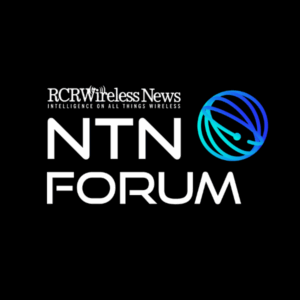Nextel Communications Inc. is in search of a strategic partner to help finance its nationwide wireless communications network. But since MCI Communications Corp. backed out of its relationship with Nextel, the wireless operator has spent considerable time trying to calm Wall Street.
Analysts dialed into a Nextel conference call earlier this month to express concern about Nextel’s business plan since the MCI announcement. Questions ranged from technology issues, to marketing, branding and financial concerns.
“We regret what has happened,” said Morgan O’Brien, chairman of Nextel, referring to MCI’s decision earlier this month to pull out of the deal. MCI’s decision not to invest in Nextel does not signal the end of the road for the company, O’Brien stated, adding that Nextel’s nationwide wireless footprint is of significant value.
Value or not, Nextel stock dropped $7.12 per share following the announcement, and at press time had stabilized up $1 to close at $24.38 per share.
“Challenge for us is to replace the (MCI) distribution capability,” O’Brien told analysts, adding that while the long-distance company’s marketing name was a big plus, Motorola Inc. and Panasonic Communications & Systems Co., both companies planning to make Nextel handsets, also have powerful marketing names.
Nextel is building a nationwide integrated wireless communications network using digital specialized mobile radio channels that could compete with cellular providers for customers.
It is still unclear what ended negotiations, but MCI President Gerald H. Taylor was reported to say that technology was not the problem, just price. Analysts noted that Motorola wanted about $36 per share from MCI to buy down its nearly 22 percent interest in Nextel.
Last February, MCI agreed to pay about $1.3 billion for 17 percent of Nextel through an alliance with Comcast Corp., a cable television operator that already had an ownership interest in Nextel, and options to buy about 15 million more shares. Recent deals by Nextel to expand operations, including merger agreements with fellow SMR operators OneComm Corp. of Denver, and Greenville, S.C.-based Dial Page Inc., and purchasing SMR licenses from Motorola, would have reduced MCI’s investment to about 12 percent.
Subscribe now to get the daily newsletter from RCR Wireless News
Motorola, according to MCI, killed any chance to keep alive an alliance between the wireless, long-distance telephone and cable television heavyweights by vetoing a newly structured deal in the works.
“MCI and Nextel were very close on terms and price,” said Kevin Inda, an MCI spokesman.
Comcast remains a major investor in Nextel, despite the collapse of MCI-Nextel discussions. The cable television company has the right to increase ownership on its own, or through a strategic alliance with some other company.
Analysts confronted Nextel executives with technology issues. Some questioned the quality of Motorola’s Integrated Radio Service, or MIRS, technology adopted by Nextel, and others raised questions about the handsets.
One analyst mentioned that voice coding technology has limited the quality of the digital SMR systems and suggested that higher bit-rate vocoders could improve voice quality in congested areas. Nextel would not confirm any pending changes in handset components.
Nextel initially plans to offer larger, more cumbersome Motorola-made Lingo handsets to high-end dispatch customers who might pay a premium for the integrated service rather than use dispatch, cellular and paging services separately. Many analysts believe that MCI wanted smaller handsets with consumer appeal to be introduced earlier than the projected 1995 to early 1996 time frame.
O’Brien pointed out that MIRS is working well for an early-generation technology, but that Nextel is not required to use MIRS technology throughout its network if something better comes along in the future. The agreement between Nextel and Motorola gives Nextel future rights to convert 75 percent of its channels nationwide to non-MIRS technology.
No announcements have been made as to who might be possible partners for Nextel, but reports have surfaced that some regional Bell operating companies could be interested.









